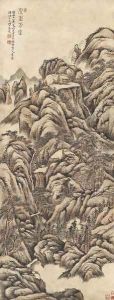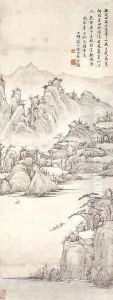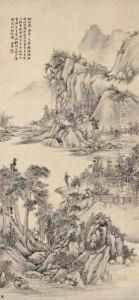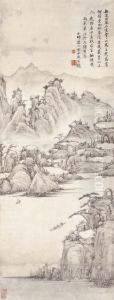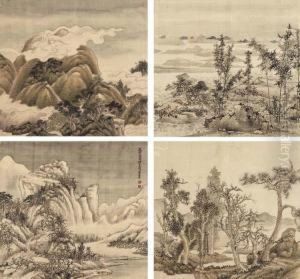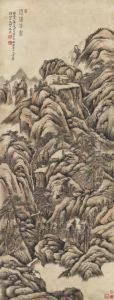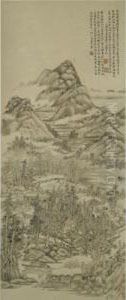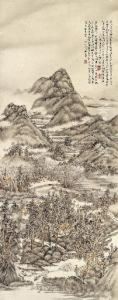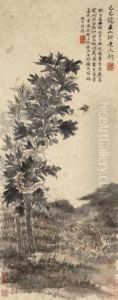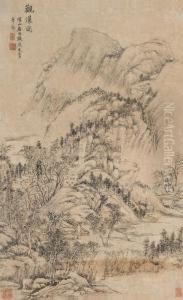Fang Shishu Paintings
Fang Shishu was a notable Chinese scholar, painter, and calligrapher from the Qing Dynasty, renowned for his intellectual prowess and artistic skills. Born in Wuxi, Jiangsu Province, his life was marked by a commitment to both the scholarly pursuits of Confucianism and the artistic expression found in painting and calligraphy. Despite the political and social upheavals of his time, Fang managed to carve out a space where his intellectual and artistic endeavors could flourish.
Fang Shishu's scholarly work was deeply rooted in the classics of Confucianism, and he was known for his critical approach to textual analysis and interpretation. His dedication to the study of ancient texts was matched by his skill in calligraphy, where he was celebrated for his elegant and powerful style. As a painter, Fang was adept in both landscape and literati painting, his works reflecting the deep connection between the natural world and scholarly life that is central to Chinese aesthetic thought.
Throughout his life, Fang Shishu was engaged in the intellectual debates of his time, contributing to discussions on morality, governance, and the role of the scholar in society. His works, both written and painted, were highly regarded by his contemporaries and have been studied by generations of scholars and artists since. Despite facing challenges, including official scrutiny and the inherent difficulties of maintaining a scholarly life in tumultuous times, Fang's legacy as a thinker and artist has endured.
Fang Shishu's contributions to Chinese art and intellectual history cannot be overstated. His paintings and calligraphic works are considered treasures of Chinese culture, embodying the sophisticated interplay of philosophy, aesthetics, and nature that is a hallmark of the Qing Dynasty's cultural achievements. His life and work offer a window into the rich tapestry of Chinese scholarly and artistic traditions, making him a figure of enduring interest and respect.

